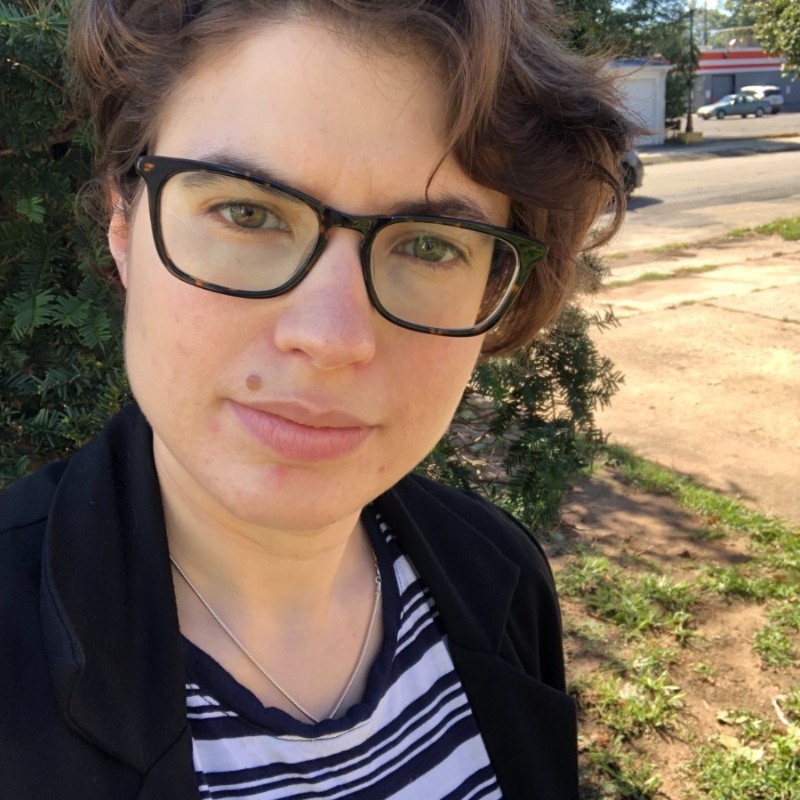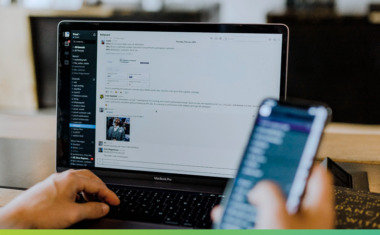Ex-Manager on Passing a Facebook Software Engineer Interview

In this article
- Are Software Engineer Interviews at Meta/Facebook Difficult To Pass?
- About the Meta/Facebook Software Engineering Interview
- Example Interview Questions for Meta/Facebook Software Engineers
- How To Prepare for Your Meta/Facebook Engineering Interview
- What To Avoid During Your Meta/Facebook Interview
- FAQs About Interviews at Meta/Facebook
- Author Bio
Hi, I’m Lior. I spent five years at Meta/Facebook as a software engineer and engineering manager, and during that time, I conducted more than 200 interviews with prospective job applicants. In this post, I’ll share my insights on how to prepare for the Meta/Facebook interview process, so that you can maximize your chance of landing a job.
Are Software Engineer Interviews at Meta/Facebook Difficult To Pass?
Yes! In order to keep the talent bar high within the company, the interviews are intentionally difficult. The company is known for its high standards and its emphasis on hiring the best and brightest engineers in the industry. Furthermore, Meta/Facebook receives a large number of applications from highly qualified candidates, which means that the competition is fierce. As a result, the interview process is designed to be rigorous and to test a candidate’s technical skills and problem-solving abilities.
What makes the interview process challenging is that you aren’t just tested on your technical abilities. There are also high expectations for the behavioral interview, in which your soft skills and culture fit are evaluated too. But with enough preparation and dedication, I believe anyone can pass the Meta/Facebook interviews.
About the Meta/Facebook Software Engineering Interview

Here’s what to expect:
The Process
The interviewing process typically begins with an initial screening call with a recruiter. This is followed by a single coding interview conducted over the phone or via video conference. During this call, the candidate is given two coding problems and is expected to solve them both within 40 minutes.
If the candidate is selected to move forward in the process, they will be invited for a full day of interviews. This consists of four back-to-back interviews, each lasting 45 minutes. They go as follows:
- Two coding interviews: These are similar to the screening call in which the candidate is expected to solve two coding problems in each interview.
- One systems design interview: Here, candidates are asked to design and explain the architecture of a large-scale system or application.
- One behavioral interview: This is where candidates are asked to provide specific examples of how they have behaved in past situations in order to assess their fit for the company culture.
Timeline
The timeline for the interview process can vary, depending on the position and the number of candidates being considered. On average, the process takes about 4-6 weeks from the initial screening call to the final decision.
What Is Evaluated?
As mentioned, the three types of interviews are coding, systems design, and behavioral. Here is a breakdown of what is evaluated in each interview:
Coding Interview
A candidate will be asked to solve two coding challenges during this interview. This is then assessed on four main focus areas:
- Problem-solving: How well does a candidate analyze problems, devise a solution, and implement them effectively?
- Coding: How well does the candidate write clean, efficient, and well-organized code?
- Debugging: How well does the candidate approach debugging issues in their code?
- Communication: Does the candidate talk through their thought process in a clear and concise manner?
Behavioral Interview
During this interview, a candidate is assessed on whether they can demonstrate the right behaviors and values that would make them successful at Meta/Facebook. Eight focus areas are assessed:
- Motivation: What drives them? Ideal candidates are self-motivated and passionate about technologies and products that have a real impact.
- Ability to be proactive: Can they take the initiative? Given a difficult problem, can they figure out how to resolve and execute it?
- Able to work in an unstructured environment: How well are they able to take ownership in ambiguous situations? Or do they rely on others to be told what to do?
- Perseverance: Are they able to push through difficult problems or blockers?
- Conflict Resolution: How well are they able to handle and work through challenging relationships?
- Empathy: How well are they able to see things from the perspective of others and understand their motivations?
- Growth: How well do they understand their strengths, weaknesses, and growth areas? Are they making a continued effort to grow?
- Communication: Are they able to clearly communicate their stories during the interview?
Systems Design Interview
Meta/Facebook’s systems are large and complex, so candidates will be evaluated on their ability to design and implement systems that handle large amounts of data and traffic. Candidates will be asked questions that test a candidate’s ability to think about scalability, performance, and reliability. Areas that are assessed include:
- Ability to understand and analyze complex systems: Candidates should have a deep understanding of how systems work, and how to analyze and design them effectively. They will be asked questions that test their ability to think through the various components of a system and how they interact with each other.
- Knowledge of scalability, performance, and reliability: Candidates will also be evaluated on their ability to design systems that can handle large amounts of data and traffic and can scale to meet the demands of a rapidly growing user base.
- Familiarity with distributed systems: Meta/Facebook’s systems are distributed, so candidates should have experience with distributed systems and understand the challenges that come with them.
- Understanding of networking concepts: Candidates will also be evaluated on their understanding of networking concepts such as IP addressing, DNS, load balancing, and CDN and how they relate to systems design.
What Happens After the Interview?
Each interviewer will submit their feedback as well as give a hire or no-hire recommendation for the candidate. Once all interviewers have submitted their feedback, the candidate’s performance will be discussed in a debrief session. If all the interviewers are satisfied with the performance, then the interview feedback will be forwarded to a hiring committee, which will make the final decision. If the candidate’s performance is mixed or poor, they will be rejected, or the interviewers will request that the candidate complete one or two more interviews. For example, if a candidate did well in all interviews except one of the coding interviews, then they may be asked to do another coding interview. If a candidate does poorly in two or more interviews, then it is very likely they will be rejected.
Example Interview Questions for Meta/Facebook Software Engineers

Coding Interview:
- Given an array of integers, find a local minimum from the array. A local minimum is defined as an integer in the array that is less than or equal to its neighbors.
- Given an array of numbers, return true if there is a subarray that sums up to a certain number, n. A subarray is a contiguous subset of the array.
- Write a function called “anagramIndexOf” that takes a target string and a search string and returns the index of the first instance of any anagram of the search string in the target string.
Behavioral Interview:
- What project are you most proud of and why?
- Tell me about a time when you wanted to change something that was outside of your regular scope of work.
- Describe a situation when you made a mistake and what you learned from it.
- Tell me about a person or team who you found it most challenging to work with.
- Tell me about a time when you needed to overcome external obstacles to complete a task or project.
Tip: The best way to prepare for this interview is to build a list of stories you know well and can speak to when prompted. You can’t anticipate the exact questions you’ll get, but preparing beforehand will give you the confidence that’s needed.
Systems Design Interview:
- Design a URL shortening service, like TinyURL
- Design a system for a video streaming service like YouTube or Netflix
- Design a system for a message board service like Quora, Reddit, or HackerNews
- Design a web crawler
How To Prepare for Your Meta/Facebook Engineering Interview

Preparing for an engineering interview at Meta/Facebook can be a daunting task. But with the right approach, you can increase your chances of success. Here are a few tips on how to prepare for your interview:
-
Brush Up on Your Data Structures and Algorithms
-
Practice Coding
-
Understand Systems Design
-
Review past experiences and prepare examples
Brush Up on Your Data Structures and Algorithms
Meta/Facebook places a strong emphasis on understanding and implementing data structures and algorithms, so it is essential to have a solid grasp of these concepts. Review basic algorithms such as sorting and searching, as well as more advanced concepts such as graph algorithms.
Practice Coding
It’s important to practice coding as much as possible. Work through coding challenges and practice writing clean, efficient, and well-organized code.
Understand Systems Design
Meta/Facebook’s systems are large and complex, so it’s important to have a good understanding of systems design. Review concepts such as scalability, performance, and reliability, and think about how they apply to different systems.
Review Past Experiences and Prepare Examples
Behavioral questions are an important part of the interview process, so it’s important to review past experiences and prepare specific examples of how you have handled difficult situations, demonstrated leadership, or solved problems.
What To Avoid During Your Meta/Facebook Interview
Don’t Fake It
Be honest about your skills and experience. If you don’t know the answer to a question, it’s better to admit it rather than try to fake your way through it.
Don’t Talk Negatively About Past Experiences
Avoid criticizing previous employers, colleagues, or projects. Focus on positive experiences and how you learned from challenges.
Don’t Forget To Showcase Your Passion
Meta/Facebook values passionate engineers who are excited about the work they do. Make sure to showcase your passion and enthusiasm for technology and problem-solving during the interview.
Get To Know Other Software Engineering Students
Dave McConeghy
Software Engineering Career Track Student at Springboard
Alyssa Menes
Software Engineer at Progyny
Pritisha Kumar
Software Engineer at Dialpad
FAQs About Interviews at Meta/Facebook
We’ve got the answers to your most frequently asked questions.
How Many Interview Rounds Should I Expect?
Following the initial screening call with the recruiter, you should expect two rounds of interviews. The first round will consist of a single coding interview, and the second round will consist of four interviews (two coding, one behavioral, and one systems design). Note that in some circumstances, a third round may be requested. These will usually consist of one more interview, which may be either the coding, behavioral, or systems design interview.
How Long Does the Process Usually Take?
The timeline for the Meta/Facebook software engineer interview process can vary depending on the position and the number of candidates being considered. However, on average, the process takes about 4-6 weeks from the initial screening call to the final decision.
How Can I Improve My Odds of Getting Hired?
The key is to prepare as much as possible! It helps you to be more confident and relaxed during the interview. By practicing your interviewing skills and familiarizing yourself with common interview questions, you will be more comfortable and less likely to be caught off guard during the actual interview.
Author Bio
Lior Neu-ner is a former Software Engineer and Engineering Manager at Meta/Facebook, where he worked on Workplace from Meta and Whatsapp. He is currently the founder of Remote Rocketship, a job board for remote tech job openings. You can reach him on LinkedIn and Twitter.
Since you’re here…
Considering a career in software engineering? We’ll help you build a CV that rivals experienced software engineers in 9 months flat with our Software Engineering Bootcamp. If you’re still mulling, try our free software engineering learning path and check out our salary guide to see what you could be making.





